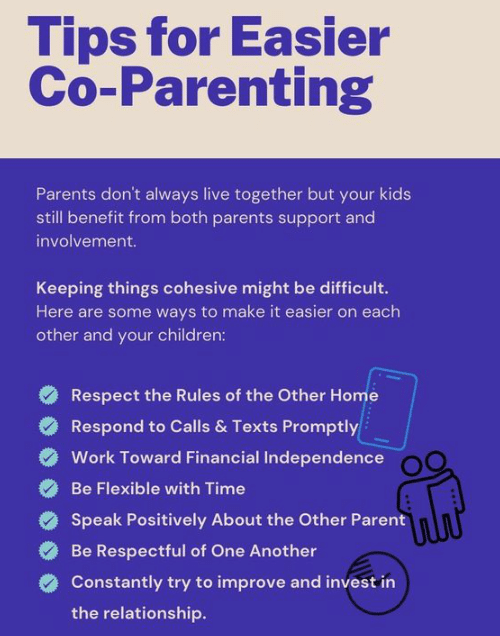Meet Charlie, a bright and energetic 9-year-old with autism. His parents, Emily and Mark, ensure he thrives in every aspect of life. Here’s a glimpse of how co-parenting plays a crucial role in Charlie’s journey:
| Collaborative Education Planning: |
Emily and Mark regularly meet with Charlie’s teachers and therapists to discuss his individualized education plan (IEP). They work together to identify his strengths, challenges, and strategies for success. |
| Balanced Schedules: |
Co-parenting involves a shared commitment to maintain consistency in Charlie’s daily routine. Emily and Mark coordinate their schedules to ensure he has a stable environment, which is especially important for children with special needs. |
| Effective Communication: |
Open and respectful communication is key. Emily and Mark exchange information about Charlie’s progress, therapies, and any changes in his behavior. They actively listen to each other’s insights and concerns. |
| Access to Resources: |
Co-parenting allows Emily and Mark to pool their resources, ensuring Charlie can access the best therapies, support groups, and specialized services to aid his development. |
| Celebrating Achievements: |
Emily and Mark take pride in celebrating Charlie’s achievements, no matter how small they may seem. This positivity and encouragement boost his self-esteem and motivation. |
| Flexibility and Patience: |
They understand that challenges may arise and approach them with patience and flexibility. Co-parenting isn’t always easy, but their shared commitment to Charlie’s well-being keeps them on the same page. |
Charlie’s progress is a testament to the power of co-parenting in nurturing the growth and happiness of a child with special needs. By working together as a team, Emily and Mark ensure that Charlie’s journey is filled with love, support, and endless possibilities.














